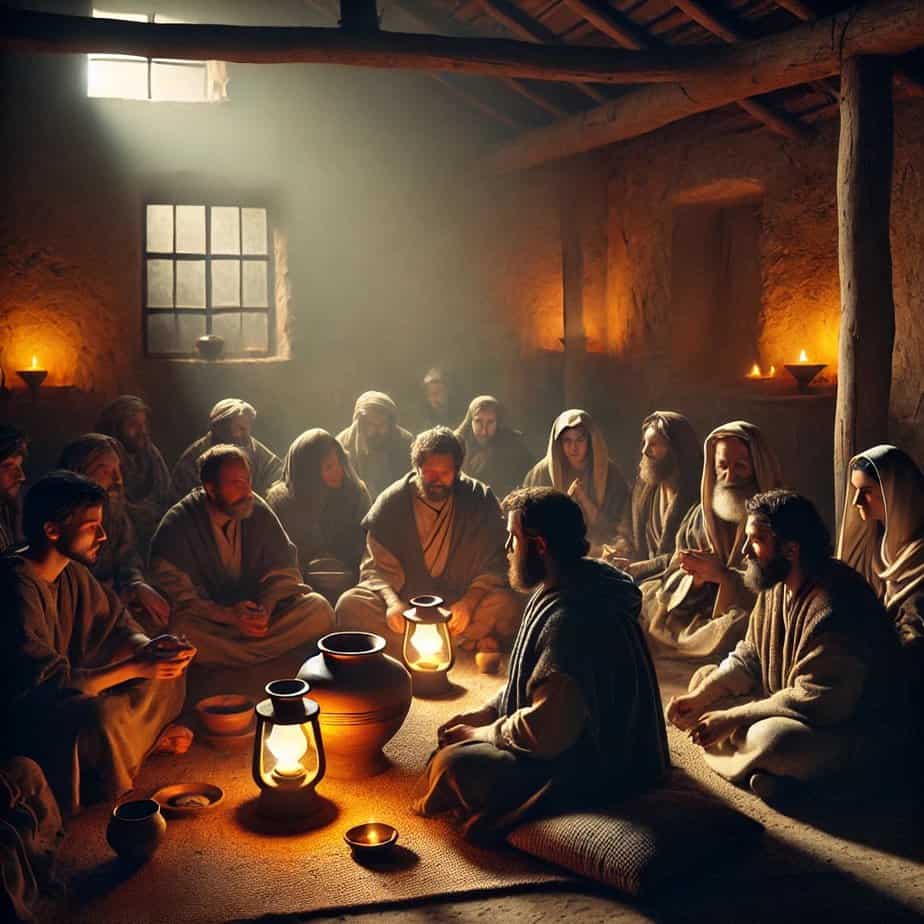Paul’s letter to the Colossians is one of those epistles that packs a punch. It’s all about lifting up Jesus and reminding believers that He’s not just an important figure. He is the Almighty God of the universe who is above all things. —He is supreme. Supremacy is a word we don’t throw around lightly, but for Paul, it’s the best way to capture who Jesus is. He’s not just part of the story; He is the story.
So, what’s the deal with this letter? Who was it for, and why should we care today? Let’s have a look.
Why Did Paul Write to the Colossians?
The Colossian church had a problem, and it wasn’t the usual issues like lack of money or attendance. They were dealing with some confusing teachings that were starting to creep in. False teachers were mixing in ideas from Jewish legalism, Greek philosophy, and some mystical practices. They were saying, “Yeah, Jesus is great, but you also need this other stuff to be truly spiritual.”
Paul heard about this and knew that he must confront the false teachings and encourage the Colossian believers to reject the false teachings. His main goal in writing this letter was to set the record straight: Jesus is enough. The gospel is not Jesus plus something else. You don’t need to add anything extra to what He’s already done. The believers in Colossae needed this reminder, and honestly, so do we.
What’s Inside the Letter?
Paul gets right to it and doesn’t waste time. He is straight to the point, painting this grand picture of who Jesus really is. In chapters 1 and 2, he talks about Jesus as the image of the invisible God and the One who created everything (Col. 1:15-17). Can you imagine that? Some people get the impression that Jesus just showed up in the Biblical narrative when he came to earth. But He was there as God in the beginning and “in Him all things were created” (Col. 1:16.
Paul goes on to say that through Jesus’ death and resurrection, everything can be reconciled to God. He’s not merely a religious figurehead; rather, He is the One who holds all things together and provides the way to bring all creation back into harmony with God.
In chapters 3 and 4, Paul gets practical. He tells believers that they should live like they belong to Jesus. That means to Trust in the Holy Spirit to work through you, trusting in the Holy Spirit to work through you, renewing your mind and shaping your will to align more closely with Christ as you grow in faith. (Col. 3:1-5). Paul covers everything from relationships to work, reminding them that their new life in Christ should transform every part of their day-to-day living.
Theology of Colossians: It’s All About Jesus
The theology in Colossians is crystal clear: Jesus is not just part of your spiritual journey—He is your spiritual journey. Paul lays out a Christ-centered view of everything, from creation to redemption. Jesus isn’t just a teacher or a prophet; He’s God Himself, come to rescue and restore.
Legalism
Paul also tackles the idea of legalism. He makes it clear that we’re not bound by a bunch of rules to be right with God. Christ fulfilled the law, and through Him, we are free (Col. 2:16-17). That’s a game-changer, especially for those who grew up thinking religion was all about following the rules.
Does God want us to be obedient to Him as we live, love, work, and serve in this life. Of course! It is to our benefit and for the glory of God. However, we do not come to God as those who did under the old covenant. We don’t get our love and acceptance from Him because of our good works. If he has changed our lives through our trust in his death, burial, and resurrection, then we can be given the desire and the power to do His will.
The Christian life is a relationship with a living God. If we trust and continue to see Him, he will lead us to do good works. However, those good works are an outgrowth of walking with Him, and not about checking off a list of good deeds to do every day. We get that backward much of the time and it can cause us to fall into legalism, or trying to gain God’s favor or love because of our good works rather than His power displayed in His death and resurrection.
Who Was Paul Writing To?
Paul wrote this letter to a relatively small church in Colossae, a city in Asia Minor. He didn’t personally plant this church, but he had a close connection through a man named Epaphras, who did. Epaphras brought Paul the news of the false teachings, and Paul decided to send a letter to straighten things out. Even though Paul never visited Colossae, his words carried authority because he was speaking God’s truth.
How Does This Apply to Us Today?
Now, here’s where it gets personal. The same issues Paul addressed are still around today. We live in a world full of distractions, where (in our context” Christians may say, ‘Jesus is great, but you also need to add good works like quiet time with God, prayer, Bible study, witnessing, or ministering to the poor to secure or keep your salvation.’ While these are all important and beneficial practices, they do not provide you salvation or keep your salvation. Instead, they are the natural outgrowth of the Spirit of God living through you as you are obedient to Him.
Paul’s message cuts through all that noise: Jesus is enough. We don’t need to add anything to the gospel. Whether it’s legalism, mysticism, or modern-day philosophies, nothing compares to the sufficiency of Christ. He’s already done the work, and our job is to trust Him and live like it.
Paul also reminds us to set our hearts on things above (Col. 3:2). That doesn’t mean we walk around with our heads in the clouds, but it does mean that our priorities should shift. Instead of being consumed by the temporary stuff of life, we focus on what really matters—our relationship with Christ and how that shapes everything we do.
Wrapping It All Up
Paul’s letter to the Colossians isn’t just ancient advice; it’s a message we need today. In a world full of distractions, Paul reminds us to center our lives on Jesus. Christ is Supreme! He’s not just a piece of the puzzle—He’s the whole thing. We don’t need to chase after the next big thing or try to earn our way to God. Jesus has already made the way, and He’s supreme over everything. Our response? Trust Him, live like we belong to Him, and let that change everything
For Personal Reflection
Should I take more moments in my day to focus on the supremacy of Jesus Christ?
In what areas of my life am I relying on my own efforts instead of trusting the Holy Spirit to work through me?
Do I view my good works as a response to God’s grace, or have I subtly believed that they are necessary to maintain my salvation?
How can I be more intentional in allowing the Holy Spirit to renew my mind and shape my will daily?





Leave a Reply